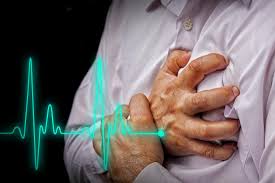Heart failure often
develops because you have (or had) a medical condition affecting your heart,
such as coronary artery disease, a heart attack or high blood pressure, which
has damaged or put extra workload on your heart. These are the most common
reasons why you may have developed heart failure. However, there are many other
reasons why you may have heart failure, including heart blood pressure, coronary
artery disease, valvular heart disease, heart muscle disease and arrhythmias.
Heart failure can develop at any age but clearly becomes more common the older
you get. Around 1% of people under 65 years of age have heart failure, but 7%
of 75-84 year olds have heart failure and this increases to 15% in people older
than 85 years of age. It’s the most common cause of hospitalisation in patients
over 65 years of age.
Although it’s called heart 'failure', it doesn't mean that your heart is about
to stop working. However, it does mean that your heart is having difficulty
working to meet the needs of your body (especially during activity).



 Contact Us
Contact Us






 Hospitals
Hospitals
 Doctors
Doctors
 Diagnostic
Diagnostic
 Pharmacy
Pharmacy
 Health Tips
Health Tips
 Blog
Blog

























Comments